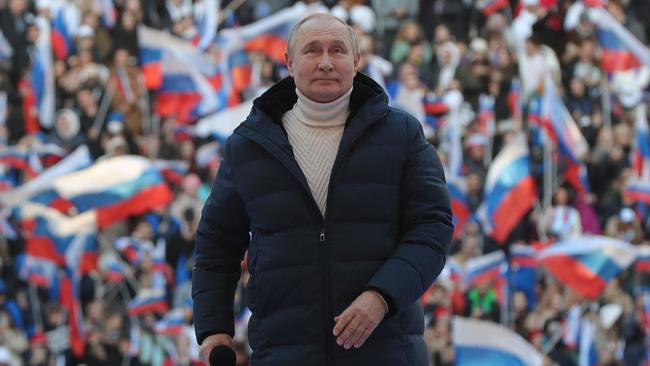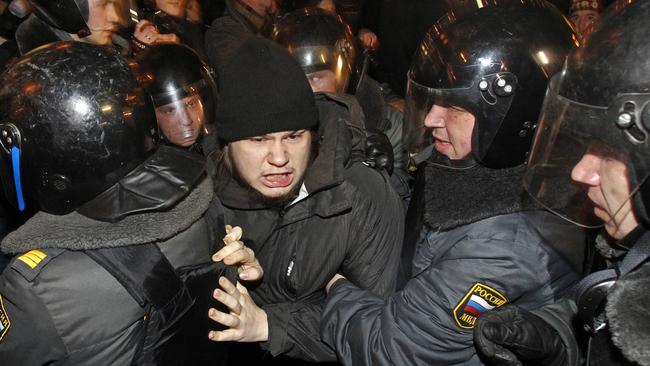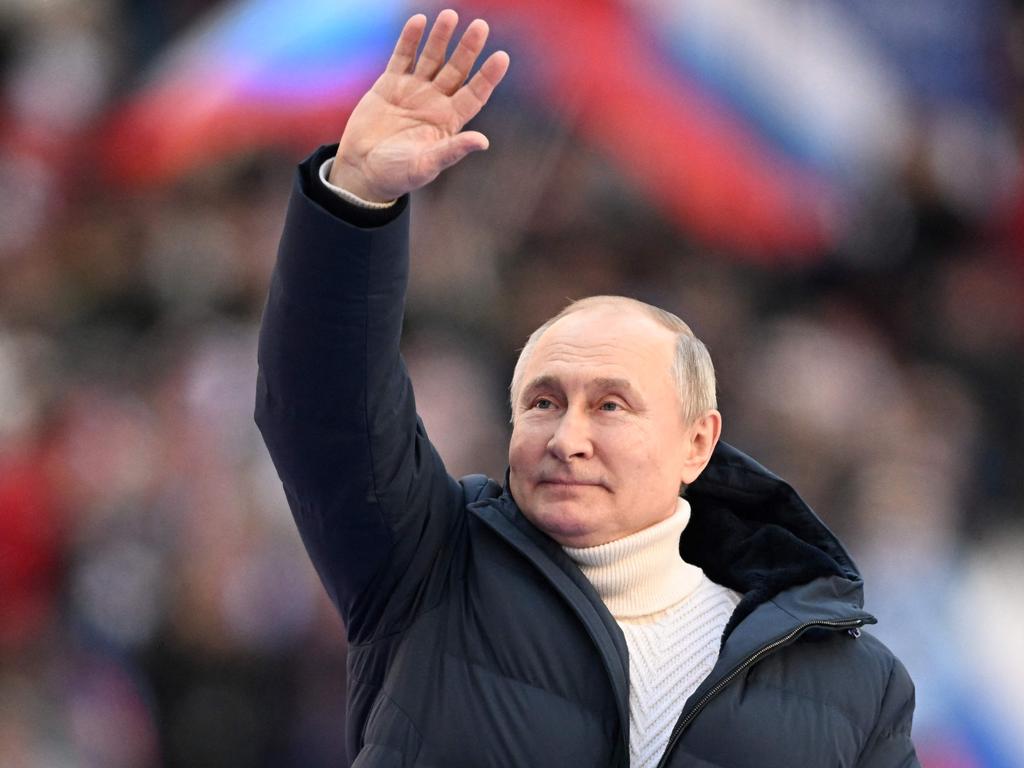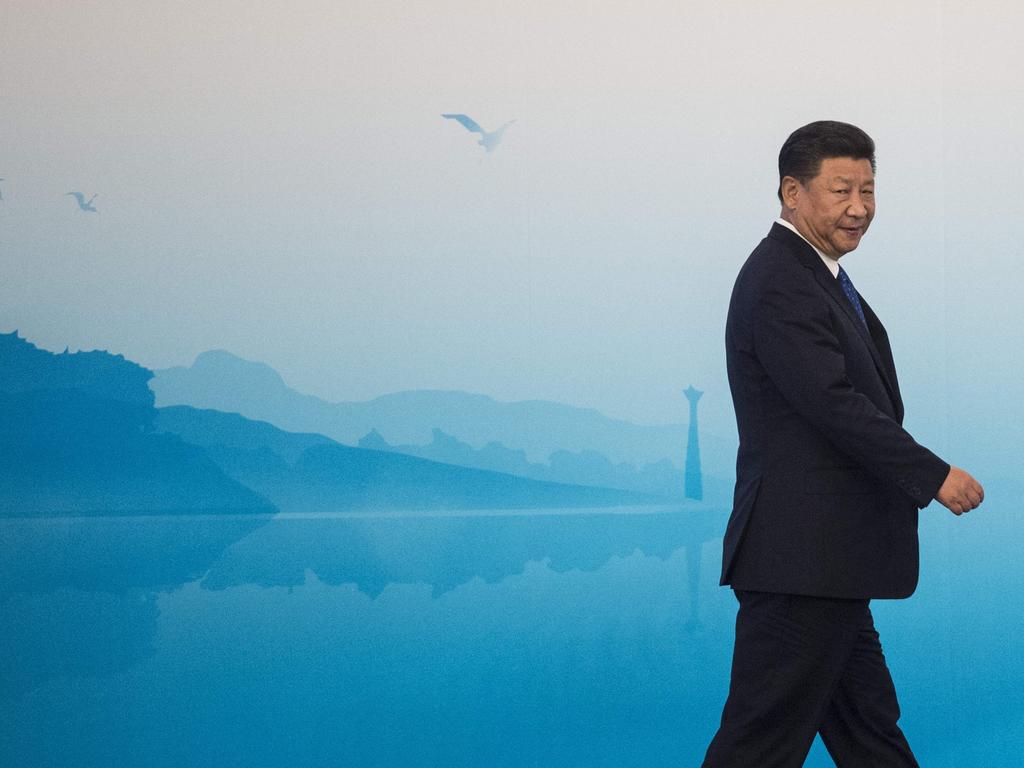
Of course, the trend that found its apotheosis in Hitler, Stalin and Mao was not new: already in 1742 Hume had identified the rise of “wars of principle” as a distinctive feature of “modern times”, which were soaked in the blood of antagonists “more furious and enraged than the cruellest factions that ever arose from interest and ambition”.
And it is one of history’s ironies that it was Napoleon who, as he faced impending defeat, gave “ideology” its contemporary meaning, using the word a minor French philosopher had coined for entirely different purposes to bemoan the “shady metaphysics” that sends rulers on ill-judged adventures, causing “every misfortune”.
Yet the mere fact that ideology has been the source of so much senseless violence does not mean that every murderous despot is an ideologue; and while Vladimir Putin certainly has ideas, his conduct is guided less by sweeping theories than by the brutal realities of power.
To say that is not to deny the weight he has always placed on a number of common themes, especially that of Russia’s role in the world.
But recent attempts, including on these pages, to paint Putin as motivated by the neo-Eurasian fantasies of Alexander Dugin – a Russian writer best known for his Foundations of Geopolitics (1997), in which a resurgent “Eurasia” fells the “anti-Christ” of a decaying West – not only portray him as madder than he is; they also ignore the richness of the Russian intellectual tradition on which Putin, however opportunistically, draws.
As Alexandre Koyre, a great Russian historian of ideas, argued long ago, that tradition has been “entirely dominated and determined” by the “single fact” of Russia’s ambivalent relation to Europe and the West.
No doubt, the language of the Russian debate about the relationship has changed over the centuries, with the West replacing Europe as the menacing “other” during the Soviet era.
The stylised oppositions on which the debate rests have changed too, progressively pitting Byzantine Orthodoxy against Roman Catholicism, Russian spiritualism against European rationalism, tsarist autocracy against Anglo-Saxon liberalism, Soviet socialism against American capitalism, and now globalism against nationalism.
But throughout those transitions, the range of positions has remained remarkably stable.
At one end have always been those for whom Russia is, as Catherine the Great put it in 1767, “a European power”, with a destiny that hinges on its ability to become an integral part of Europe’s family of nations, including by absorbing the Enlightenment’s cultural outlook.
At the other are the thinkers, writers and officials who view Europe as an existential threat to Russia’s distinctive but fragile civilisation which – in Countess Eudoxie Rostopchine’s phrase of 1848 – must be sheltered behind an impenetrable “Chinese wall”.
Set against that range, Putin’s position has shifted in line with his interests and his hold on power. Thus, as Katri Pynnoniemi and Veera Laine have shown, the speeches he gave in his first two terms included recurring references to shared European values.
However, after “the massive street protests against Putin’s regime in 2011-12”, the President’s rhetoric morphed into that “of the leader of a country of war”, repeatedly stressing that Russia’s survival in what he called the “new balance of economic, civilisational and military forces” depended on its “national will”. The earlier endorsements of human rights vanished; in their place came a wave of belligerency, with Putin proclaiming in 2014 that “no country will ever attain military superiority over Russia” and in 2020 that “for the first time in the history of nuclear missile weapons” Russia had overtaken the other nuclear weapons states.

The intellectual references also shifted, with far greater emphasis on the work of Ivan Ilyin (1883-1954), a Russian emigre philosopher who has been aptly described as Putin’s “first philosophical love”.
An admirer of Franco and Salazar who made his name as a scholar of Hegel, Ilyin’s later essays, which claimed to identify a Western conspiracy to dismember Russia and bury its spiritual heritage, figured prominently in the resurgence of “national Bolshevism” that began in the late 1960s Soviet Union.
Only authoritarian rule, Ilyin argued, could preserve Russia from its “Western-European” enemies, who sought to ensure its permanent “political and diplomatic isolation” by “relentlessly exposing her imaginary ‘imperialism’, ‘reactionism’, and ‘aggressiveness’ ”.
That those claims would be taken up by Putin, particularly in the wake of annexing Crimea, is hardly surprising; once again, he tailored his rhetoric to his circumstances.
Nor is it surprising that the Kremlin’s disinformation machine transformed them into an effective narrative: according to the highly respected Levada Centre, the proportion of Russians who believe their country has enemies rose from 41 per cent in 1994 to 81 per cent at the end of 2018, while the share who view those enemies as surrounding Russia increased fivefold.
But it would be a mistake to overstate the depth of those convictions, or the extent to which they translate into support for wars of aggression.
After all, the polls consistently show that Russians place much more importance on economic prosperity than on international grandeur; and while accurate polling has become increasingly difficult, the only truly independent polls find that the invasion of Ukraine has less backing than had the Crimean annexation, with a majority of younger respondents having the courage to say they oppose it.
Those younger respondents are Russia’s future. Putin knows that, which is why his Ministry of Education is using every resource of repression and indoctrination to transform the most illiberal elements of Russia’s cultural heritage into an all-pervasive dogma.
There is, however, a stubborn fact no diktat can erase: from Pushkin to Pasternak and Akhmatova, the brightest jewels of Russia’s heritage have always stressed, with Dostoevsky, that while “tyranny is a habit capable of being developed, and which at last becomes a disease”, “man is an odd creature who would prefer to be flayed alive rather than surrender his freedom”.
Helping Russia’s writers, artists and teachers preserve, enrich and disseminate that heritage should be an absolute priority for the West.
To boycott the country’s intelligentsia would therefore be a disastrous mistake; especially now, with Russia feeling the sting of sanctions, it is not impenetrable walls we need but the bridges that remained open even at the worst of the Cold War.
Putin worships raw power; ideas, to him, are merely its servants. The West, for all its flaws, still values them – and the freedom to contest them – for themselves. We have fought the battle of ideas with Russian dictators before; as the Ukrainians stymie Putin’s pretensions of glory, it’s time to fight it again.








That the 20th century was an age of tyrants who were all the more murderous for being ideologically driven hardly needs to be said.